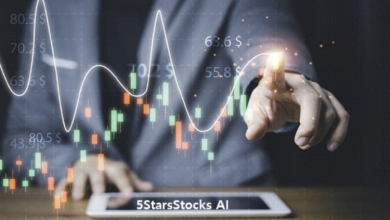A Comprehensive Guide to Bayer Stock: Insights, Trends,

Introduction: Understanding Bayer Stock and Its Significance in the Market
Bayer AG is a global pharmaceutical and life sciences company based in Germany, known for its wide range of innovative products in healthcare, agriculture, and biotechnology. Over the years, Bayer has become a household name, not just for its products like aspirin but also for its significant presence in the stock market. Bayer stock, listed under the ticker symbol BAYN on the Frankfurt Stock Exchange, has been a topic of interest for both seasoned investors and market novices.
Investing in Bayer stock offers exposure to multiple industries, including pharmaceuticals, crop science, and consumer health. With a legacy spanning over a century, Bayer’s market presence is synonymous with stability and innovation. However, like any stock, it comes with its own set of risks and rewards.
1. A Brief History of Bayer and Its Stock Market Journey
In this article, we’ll dive deep into Bayer stock, exploring its history, performance trends, factors influencing its price, and expert tips on investing. Whether you’re a beginner or an experienced investor, this guide will provide valuable insights to help you make informed decisions about Bayer stock.
1.1 The Origins of Bayer AG
Founded in 1863 in Barmen (now part of Wuppertal), Germany, Bayer started as a small chemical company producing dyes. Over time, it diversified into pharmaceuticals and agriculture, cementing its reputation as a pioneer in innovation. One of its most iconic products, aspirin, was introduced in 1899 and remains a cornerstone of modern medicine.
By the mid-20th century, Bayer expanded its operations globally, becoming a symbol of German industrial prowess. The company’s resilience through global economic crises, wars, and industry shifts highlights its adaptability—a factor that reflects in its stock performance.
1.2 Bayer Stock’s Market Debut and Growth
Bayer AG went public in 1953, listing its shares on the Frankfurt Stock Exchange. The IPO marked a significant milestone, providing investors with the opportunity to be part of Bayer’s success story. Over the decades, Bayer stock has weathered market volatility, benefiting from the company’s diversification strategy.
1.3 Key Milestones in Bayer’s Stock Performance
Bayer’s acquisition of Monsanto in 2018 was one of its most notable moves, significantly expanding its agriculture portfolio. While this merger brought challenges, including legal issues related to Roundup herbicide lawsuits, it also positioned Bayer as a leader in crop science. These developments have had a direct impact on Bayer’s stock price, highlighting the interconnected nature of business decisions and stock market performance
2.1 Historical Performance
Bayer stock has experienced both highs and lows, reflecting the cyclical nature of the industries it operates in. During periods of strong pharmaceutical launches or advancements in agricultural technology, the stock has seen impressive gains. Conversely, legal challenges or economic downturns have led to temporary dips.
2.2 Recent Performance Trends
In recent years, Bayer stock has faced mixed performance. Legal settlements related to Monsanto’s Roundup lawsuits have weighed on the stock price, creating short-term challenges. However, the company’s strong fundamentals in pharmaceuticals and crop science continue to attract long-term investors.
2.3 Comparing Bayer to Industry Peers
When compared to competitors like Novartis, Roche, and Syngenta, Bayer holds a unique position due to its diversified portfolio. While some peers focus solely on healthcare or agriculture, Bayer’s cross-industry presence provides a hedge against sector-specific downturns.
3.1 Financial Performance and Earnings Reports
Bayer’s quarterly and annual financial reports play a crucial role in influencing its stock price. Key metrics such as revenue growth, profit margins, and R&D investments are closely monitored by investors. Strong earnings typically lead to stock price appreciation, while missed targets can result in declines.
3.2 Legal and Regulatory Challenges
The Monsanto acquisition brought with it legal challenges related to glyphosate, the active ingredient in Roundup. Lawsuits and settlement costs have periodically impacted Bayer’s stock, showcasing the importance of legal factors in stock valuation.
3.3 Market Trends and Economic Conditions
Broader market trends and economic conditions also influence Bayer stock. For instance, rising demand for agricultural products during global food shortages can boost the company’s crop science division, positively affecting its stock price.
4.1 Diversification Benefits
Bayer’s presence in multiple industries makes it an attractive option for investors seeking diversification. Its portfolio spans pharmaceuticals, consumer health products, and crop science, reducing reliance on any single market segment.
4.2 Dividend Payments
Bayer is known for its consistent dividend payments, making it appealing to income-focused investors. The company’s commitment to returning value to shareholders reflects its financial stability and confidence in future growth.
4.3 Innovation and R&D Focus
Bayer invests heavily in research and development, particularly in pharmaceuticals and crop science. Its pipeline of new drugs and agricultural technologies positions the company for long-term growth, which could translate to stock price appreciation.
5.1 Legal Risks
As mentioned earlier, legal challenges related to Monsanto’s Roundup have created uncertainty for Bayer stock. While the company has made progress in resolving these cases, potential future liabilities remain a risk.
5.2 Market Competition
The pharmaceutical and agricultural industries are highly competitive, with Bayer facing challenges from both established players and emerging startups. This competition can impact market share and profitability.
5.3 Currency and Economic Risks
As a global company, Bayer is exposed to currency fluctuations and economic instability in its key markets. For example, changes in exchange rates or trade policies can influence its financial performance.
6.1 Choosing the Right Brokerage
To invest in Bayer stock, you’ll need access to a brokerage platform that offers international stock trading. Many online brokers provide access to the Frankfurt Stock Exchange, where Bayer shares are listed.
6.2 Evaluating Investment Goals
Before investing, consider your financial goals, risk tolerance, and investment horizon. Bayer stock may be suitable for long-term investors seeking stability and growth potential.
6.3 Monitoring Market Trends
Staying informed about market trends and Bayer’s financial performance is crucial for making informed investment decisions. Regularly review company updates, earnings reports, and industry news to stay ahead.
7.1 Growth Opportunities
Bayer’s focus on innovation, particularly in precision medicine and sustainable agriculture, positions it well for future growth. The increasing global demand for food and healthcare solutions creates opportunities for expansion.
7.2 Challenges to Watch
While Bayer has a strong foundation, it faces challenges such as regulatory hurdles, competition, and legal risks. Investors should keep an eye on these factors when evaluating the stock’s future prospects.
7.3 Expert Opinions
Market analysts have mixed views on Bayer stock, with some emphasizing its long-term potential and others cautioning about short-term risks. Balancing these perspectives can help investors make well-rounded decisions.
Conclusion: Is Bayer Stock Right for You?
Bayer stock represents a compelling investment opportunity for those looking to diversify their portfolio and gain exposure to the pharmaceutical and agricultural sectors. Its legacy of innovation, coupled with its strong market presence, makes it a reliable choice for long-term investors. However, like any investment, it’s essential to consider the associated risks and stay informed about market developments.





